
'King & Country' - the very title just the first of several bitter pills the viewer is forced to swallow - was the third of Dirk Bogarde's five collaborations with Joseph Losey. For me, it's second only to 'The Servant'. Powerful, unflinching and bludgeoningly grim, it's no surprise it did sod all at the box office. Forty-five years on, its impact is undiminished. This is partly because of Losey's low-key and brutally realistic portrayal of trench warfare, and partly because of a cluster of great performances. It says something that this is one of the rare titles on the Bogarde filmography that he doesn't steal from his co-stars, wittily and elegantly, every time he's onscreen.
Briefly, and with SPOILERS ALL OVER THE PLACE, 'King & Country' concerns the trial and execution (told you it was a spoiler fest!) of Private Hamp (Tom Courtenay), charged with desertion after he leaves his post and goes walking away from the British lines. He was, he explains, trying to walk home. Assigned to defend him, educated officer Captain Hargreaves (Bogarde) finds himself unexpectedly moved by the working class, simple-minded Hamp.
Convinced that Hamp - a volunteer (on account of his wife and mother pressuring him) who has been in the trenches a soul-destroying three years - acted while the balance of his mind was disturbed, and with sympathetic testimony from Hamp's superior Lieutenant Webb (Barry Foster), Hargreaves makes his case. But he's up against by-the-book prosecutor Captain Midgley (James Villiers) and a Colonel (Peter Copley) who's already made his mind up about Hamp. To make matters worse, Captain O'Sullivan (Leo McKern), the orderly Hargreaves hopes will corraborate the medical evidence, refuses to play ball, scorning the suggestion of nervous breakdown or mental illness and asserting that Hamp was basically yellow.
Bogarde's verbal duel with McKern in this scene is intense. Bogarde - at the height of his fame in the early 60s - was wilfully casting off the matinee idol image and engaging with progressively more challenging material. Gone the dashing heroism of 'Ill Met by Moonlight' and 'They Who Dare'; in its place a harried, world-weary characterisation that points the way towards the controversial roles of his later career - a shift already heralded by his slithery turn as Barrett in 'The Servant', made a year before 'King & Country'. McKern is also on top form, Foster does easily the best work of his career, and Courtenay disappears into his character so completely it's as if he were a chameleon.
'King & Country' opens with a series of extended close-ups of a war memorial - a huge, joyless sculpture of a soldier lying lifelessly on a plinth - and ends with an archive photo of a dead horse adrift in the shell-scarred mud of no-man's-land. Losey incorporates other archive photos at pertinent moments. When Hamp speaks of trying to walk home, Losey cuts to a picture of a featureless terraced house that could be on any street in any working class town anywhere in England, a woman sweeping up outside. The image is anonymous to the point of bland. Then the poster on the wall leaps out at you: 'WOMEN OF BRITAIN SAY GO!', a reminder like a slap in the face of the spousal and matriarchal motivation behind Hamp's enlistment.
Losey's black-and-white camerawork conjures life in the trenches as a symphony of mud. The incessant crump of shells - sometimes way off in the distance, sometimes dangerously close - is a constant. The rain is ceaseless. Shattered emplacements, fetid puddles and the agony of waiting. 'King & Country' is a war film without scenes of battle. The Germans are never shown. They don't need to be. The trenches themselves, the conditions in which men are forced to live (and die) - these are the enemy. What men become when war comes to define them, what they are reduced to by the stubbornness and arrogance of their leaders - these are the enemy. There are no Germans in 'King & Country'. They're not needed. The British are bastards enough.
Hamp's fellow tommies stage a mock trial with a rat standing in for him. Cruel? Definitely, but nothing compared to their behaviour on the eve of Hamp's date with the firing squad. They crowd into his cell, ply him with rotgut. Thoroughly drunk, he is barely aware of what is happening as they blindfold him and enact a mock execution. The whole thing degenerates into a grotesque approximation of blind-man's-bluff, Hamp - finally snapping - blundering around arms akimbo, yelling "Where are you, you bastards?" just as the padre enters. It's a horrible scene to watch and as damning an indictment of man's inhumanity to man and the pointlessness of war as anything in 'All Quiet on the Western Front' or 'Paths of Glory'.
Passing judgement on Hamp, the Colonel dictates his report for onward transmission to his superiors. He omits everything Hargreaves introduced into evidence, adding "Don't make any mention of mental illness. They don't need to know about that kind of thing at HQ." When Hamp is taken out to be shot, it is under the watchful gaze of O'Sullivan; his executioners are the men who made a mockery of his last night alive, and Webb is forced to give the order to fire. When the fusilade fails to kill him outright, it is left to Hargreaves to adminster the coup de grace.

Told you there were spoilers. Told you it was grim.
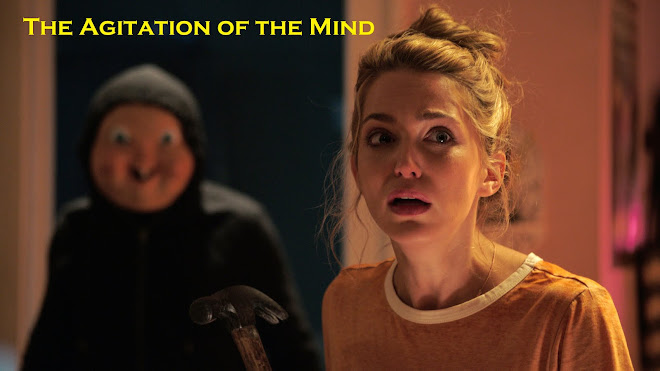

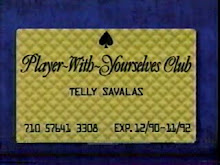
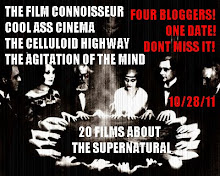
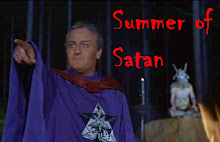
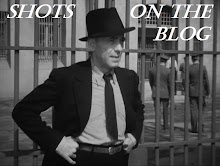










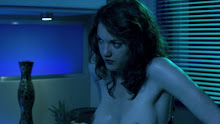
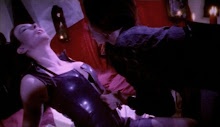





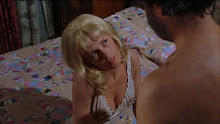
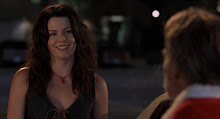








2 comments:
OOoh.. another Dirk Bogarde fan... I simply love him. In all films, event those ridiculous early ones. King and Country is so bleak. You describe it so well, that am inclined to go out and see it again..
will be back!
Thanks for stopping by, and thanks for the comment. I've been periodically posting about Dirk Bogarde's films since I started the blog in 2007 and it's been great to find that he still has so many fans.
You're right: 'King & Country' is an incredibly bleak film, but it certainly makes its point.
I'll be featuring a few of Dirk Bogarde's more mainstream films over the next week or two, including 'Campbell's Kingdom' and 'Hot Enough for June'.
Hope you enjoy the forthcoming articles.
Post a Comment